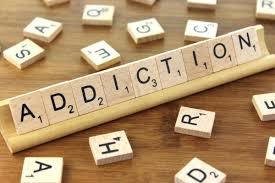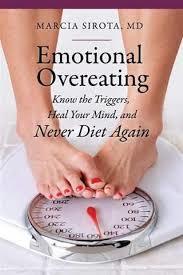Is Loneliness Driving You to Addiction? My Two Simple Strategies
Covid restrictions lead to addictions:
Reports have come out lately about the rising rates of addiction since the Covid-19 pandemic began, and it’s no surprise. As people are struggling with uncertainty and loss and they’re feeling out of control in their lives, it’s understandable that they’re turning to comfort food, alcohol and drugs in order to cope.
It’s especially difficult these days because along with the fear of becoming ill, the fear of our loved ones becoming ill, the financial strain, the job stress and the grief over what – and who – we’ve lost, we’re more lonely and isolated than ever.
The best way we cope with stress is by surrounding ourselves with people who care. Within our family, our circle of friends and our community we find the support that gets us through the toughest times. But when the Covid-19 restrictions are depriving us of this healthy way of coping, inevitably, we’re turning to less constructive solutions.
Phone calls and video chats are better than nothing but they’re not the same as face-to-face meetings. In part, it’s because there’s no possibility of touch, and touch provides us with a powerful sense of intimacy and comfort. A warm hug, a gentle hand on a shoulder, a soothing caress – all of these are missing from our “new normal.”
People are starved for touch:
Since the pandemic began, many of us have been experiencing touch deprivation. We’re missing out on the emotional and mental health benefits that gentle touch can bring.
But even aside from the lack of touch, people are more lonely and isolated than ever. Loneliness was becoming a serious problem even before the pandemic began and now, with the social restrictions, it’s become even worse. Virtual contact might help a bit but it doesn’t put a meaningful dent in the profound loneliness that people are feeling.
We need to hang out with our friends, play team sports, have people over for brunch or dinner; we need to visit people in their homes for games nights or holiday get-togethers, and none of these social activities are advisable right now.
We need to be in the presence of those who care – and it’s the one thing we can’t have. So, given that our most important source of emotional support is currently restricted, it’s not surprising that we’re defaulting to addiction.
Even people who live with a partner or children are lonely. Our immediate family might be wonderful but it can’t give us all the emotional support we need. We crave contact with our extended family and our circle of friends.
What do we do, then, when we’re lonely but we can’t be with our loved ones? We have to find other ways to cope.
Here are my two simple strategies for dealing with loneliness during the pandemic:
1. Deferred gratification:
Deferred gratification is the ability to put off our pleasure-seeking or comfort-seeking behaviour for later. It’s the ability to wait for what we want rather than indulging ourselves in the moment.
Deferred gratification is a high-level coping strategy that’s used by the most successful people in our society. I used it a lot during medical school. I’d study intensely for an exam and then afterwards, I’d reward myself with something nice. That’s how I was able to get through those grueling four years.
Successful CEO’s, professionals, and entrepreneurs understand about deferred gratification. They know that they have to make sacrifices today for a pay-off tomorrow.
Covid-19 is an unprecedented situation but for those of us familiar with deferred gratification, it’s also an opportunity to practice this skill. We understand that we have to hunker down and give up what we want in the moment in order to successfully navigate the pandemic right through to the end.
With deferred gratification, we can see the big picture and recognize that there will be other family gatherings, other sports games, other dinner parties down the road, but for right now the most important thing is to keep ourselves, our loved ones and our communities safe, so that our cities can reopen and our economies can start up again.
Deferred gratification is not the same as abstinence. Abstinence is about forever giving up the thing we want; deferred gratification is about waiting for the right time and the right circumstances in which to finally have what we want.
2. Successful self-soothing:
My other strategy for coping with the loneliness of the Covid-19 restrictions is successful self-soothing. Instead of numbing ourselves through over-eating, drinking, or using drugs – what I call “unsuccessful self-soothing” – we can compassionately recognize our feelings of hurt and loss and give ourselves the real emotional comfort we need right now.
In my book, Emotional Overeating, I go through the four simple steps to successfully self-soothe in order to feel better and break free from overeating or any other addiction.
Whether you’ve been fighting off your urges or giving in to them, this book will help you deal head-on with the needs and feelings underlying your cravings so that you can beat the urges, once and for all.
In the book, I demonstrate how addiction creates a vicious circle of craving and using: when we over-eat, drink to excess, or use illicit drugs, these substances cause the release of the brain chemical, dopamine. Dopamine gives us an instant rush of euphoria but it also increases our cravings.
The more we use, the more we crave, until we become trapped in the vicious circle of addiction. That’s one reason why stopping a substance cold-turkey can be helpful in overcoming addiction.
But we can’t stop eating so with food addiction, abstinence isn’t the solution. We have to deal with our deeper feelings and needs. To overcome over-eating, we have to learn how to self-soothe successfully.
Loneliness is painful and bad for your mental health. Deferred gratification and self-soothing are two simple strategies that can help you get through the Covid-19 restrictions without succumbing to addiction.
Sign up here for my free bi-weekly wellness newsletter. I’m doing a special every-two-week series on Moving into Autumn with Good Self-Care, where you’ll learn simple tips for taking the best care of yourself and your loved ones this fall season.
And tune in to my ongoing YouTube video series on Coping With Covid.
Marcia Sirota's Blog
- Marcia Sirota's profile
- 1 follower






